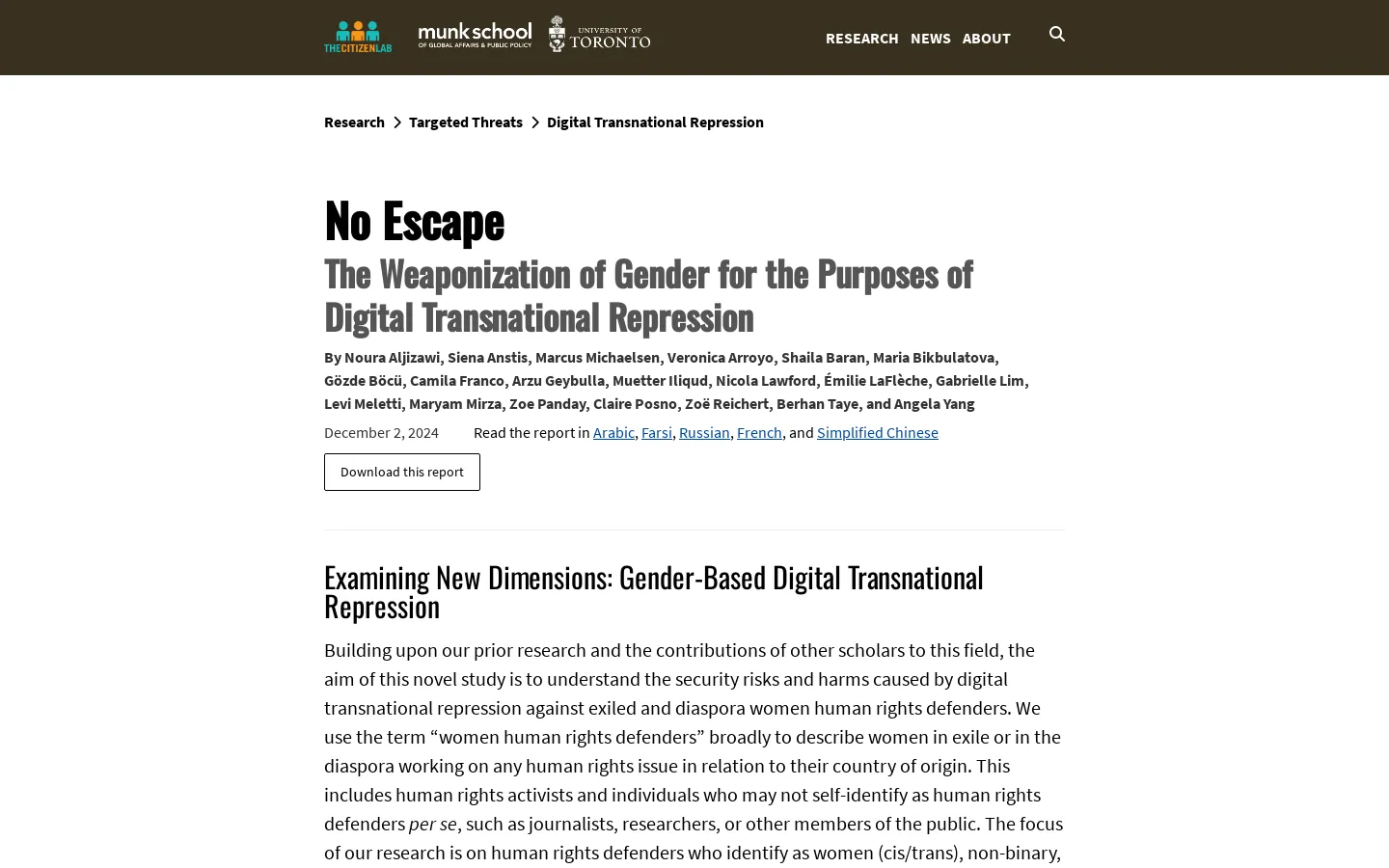
New Tutorial Initiative Addresses Intersectional Vulnerabilities in Support Networks
/ 5 min read
Quick take - A new tutorial has been created to address the intersectional vulnerabilities faced by marginalized individuals in host countries, aiming to enhance support networks and raise awareness about the unique challenges posed by multiple, intersecting identities.
Fast Facts
- A new tutorial addresses intersectional vulnerabilities faced by marginalized individuals in host countries, focusing on the compounded challenges of navigating multiple social identities.
- The initiative aims to raise awareness and develop strategies for creating effective support networks that cater to the unique needs of these communities.
- Key steps include understanding digital repression, building digital resilience, creating support networks, and advocating for policy changes to protect vulnerable individuals.
- The tutorial emphasizes the importance of education, collaboration among stakeholders, and the implementation of strong legal frameworks to combat digital threats.
- Resources recommended include digital security training, legal support networks, mental health resources, and advocacy campaigns to empower affected individuals and promote systemic change.
Addressing Intersectional Vulnerabilities in Support Networks: A New Tutorial Initiative
In a significant step towards addressing the complex challenges faced by marginalized communities, a new tutorial has been developed to tackle intersectional vulnerabilities in host countries. This initiative aims to raise awareness and provide strategies to better support individuals affected by multiple, intersecting identities, such as gender, race, and immigration status.
Understanding Intersectional Vulnerabilities
The tutorial’s primary objective is to recognize and address the compounded vulnerabilities experienced by individuals navigating various social identities. These intersecting identities often exacerbate challenges in securing support and accessing resources in unfamiliar environments. By acknowledging these specific needs, the tutorial seeks to foster more effective support networks that can provide necessary resources and assistance.
The tutorial emphasizes the importance of understanding the unique experiences of these individuals, who may find themselves at the intersection of multiple forms of discrimination and social exclusion. It highlights the critical lack of support networks available to these communities in host countries, where many feel isolated and without adequate resources to navigate their circumstances.
Implications for Policy and Community Support
The introduction of this tutorial is significant as it not only raises awareness about intersectional vulnerabilities but also encourages the development of targeted interventions. By shining a light on these issues, it aims to inspire policymakers, community leaders, and support organizations to implement more comprehensive strategies that consider the multifaceted nature of identity and vulnerability.
Ultimately, this initiative seeks to create a more inclusive environment for all individuals, ensuring that those with intersectional identities do not fall through the cracks of existing support systems. By fostering understanding and collaboration, the tutorial can play a crucial role in advocating for social justice and equity for marginalized communities in host countries.
Essential Steps for Combating Gender-Based Digital Transnational Repression
The tutorial outlines four essential steps to address gender-based digital transnational repression:
-
Understanding the Landscape: Recognize various forms of digital repression that disproportionately affect marginalized genders. This includes familiarizing oneself with tactics used by authoritarian regimes, such as surveillance, online harassment, and misinformation campaigns targeting women and LGBTQ+ individuals.
-
Building Digital Resilience: Strengthen digital literacy among vulnerable communities by teaching safe online practices and equipping them with tools to protect their digital identities. Workshops and webinars can spread knowledge about encryption, secure communication platforms, and privacy settings on social media.
-
Creating Support Networks: Encourage the formation of local and international support networks that provide assistance and solidarity. These networks can offer emotional support, legal advice, and practical resources for navigating online harassment or threats.
-
Advocacy and Policy Change: Engage in advocacy efforts to push for stronger protections against digital repression. Collaborate with human rights organizations to influence policy changes that hold governments accountable for their actions and promote safer online environments for all.
Enhancing Understanding Through Education
To enhance understanding and efficiency in tackling gender-based digital transnational repression, stakeholders should prioritize education initiatives. Comprehensive training on various forms of digital repression enables individuals and organizations to better recognize signs and implications of these violations.
Collaboration among civil society groups, tech companies, and governmental bodies can lead to robust responses. Sharing resources allows for a unified approach in combating repression, ensuring all parties are equipped with necessary knowledge and tools.
Legal Frameworks and Technological Solutions
Advocating for strong legal frameworks that protect individuals from digital threats is crucial. Legislation addressing technology’s unique challenges in gender-based violence contexts can create safer digital environments.
Leveraging technology itself can be powerful in fighting digital transnational repression. Developing innovative solutions enhancing privacy and security for at-risk individuals empowers those affected while reducing vulnerability to attacks.
Resources for Combating Digital Repression
The report emphasizes equipping individuals and organizations with tools to combat gender-based digital transnational repression effectively:
-
Digital Security Training Programs: Educate individuals on protecting their online presence and maintaining privacy through practical skills.
-
Legal Support Networks: Offer victims crucial assistance in navigating legal complexities related to online harassment or threats.
-
Mental Health Resources: Provide accessible services recognizing psychological tolls from digital harassment.
-
Advocacy Campaigns: Increase public consciousness surrounding gender-based digital repression through awareness initiatives encouraging systemic change.
Together, these tools form a comprehensive framework aimed at empowering those impacted by gender-based digital transnational repression, fostering a safer digital space for all.



